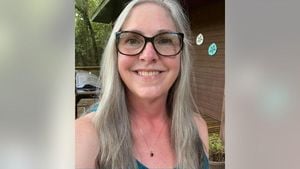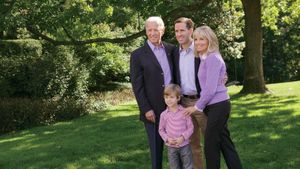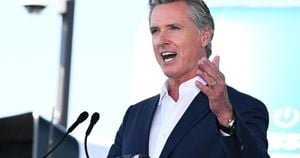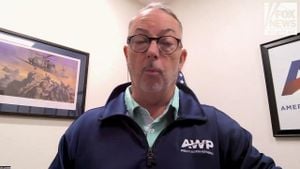Thanksgiving 2024 at the International Space Station (ISS) is shaping up to be quite special, even for astronauts Suni Williams, Butch Wilmore, Nick Hague, and Don Pettit, who are celebrating under unique circumstances. Stranded at the ISS due to malfunctions with the Boeing Starliner capsule they arrived on five months ago, these astronauts are preparing for their Thanksgiving celebration high above Earth, culminating 176 days of living and working in the intense environment of space.
To highlight this unusual holiday, the crew has access to various traditional Thanksgiving foods, including vacuum-packed smoked turkey, Brussels sprouts, butternut squash, cranberries, and some veggie sides. “We have a bunch of food packed away that's Thanksgiving-ish,” Williams told NBC News, expressing excitement about their holiday meal. Yet, the catch is typical for astronauts: the meals are dehydrated. To enjoy their festive spread, they will need to add water and reheat the foods first.
Aaron Persad, who helps NASA develop the menus, explained, “The difference between all of these items you would typically have on your table for Thanksgiving versus the astronauts is this aspect of the food having to be rehydrated.” This means everything except possibly the cornbread may end up with a “mushy” texture after preparation, quite different from the hearty meals experienced back on Earth.
Despite the challenges posed by their extended stay at the ISS, the astronauts are making the most of the situation. For days leading up to the big meal, the crew has been busy with advanced technology research and regular maintenance aboard the station. They engaged in several scientific experiments including studying genetics and working with DNA-like nanomaterials, which could lead to advancements for human health both on Earth and during future space missions.
Commander Williams worked closely with fellow astronaut Nick Hague, mixing messenger RNA (mRNA) and protein samples with water to develop nanomaterials mimicking DNA. Their efforts may pave the way for future therapies beneficial for health on Earth and otherworldly contexts. Meanwhile, Butch Wilmore devoted his time collecting microbe samples from around the station as part of research focused on antibiotic resistance—a significant concern for long-term space travel.
Don Pettit contributed by configuring the Metal 3D printer located within the Columbus laboratory. This innovative technology could produce spare parts during missions, significantly lessening reliance on resupply missions from Earth. Williams assisted Pettit, demonstrating not only the camaraderie among the astronauts but also the strong focus on practical applications of their research.
The crew’s holiday message to Earth emphasized their gratitude for family and the opportunities to work and live among the stars. They plan to unwind and celebrate Thanksgiving with their special meal, marking the occasion with video calls home and expressing their appreciation for the support from loved ones back on the ground.
Across the ocean, on the ground, people are gearing up for their own Thanksgiving celebrations. Yet even with the incredible advances made to celebrate this holiday at the ISS, many difficulties still accompany life away from home. With concerns around astronauts' health arising due to recent images depicting Williams appearing gaunt, NASA is actively monitoring her diet and physical condition. The media scrutiny has intensified, but Williams has reassured the public, attributing her appearance to fluid shifts caused by weightlessness rather than any health issues.
Despite the intensive research work and concerns about their health, the spirit of Thanksgiving remains intact aboard the ISS. The extraordinary combination of space science and personal dedication helps shine light on this unique human experience, where even during challenging times, astronauts find ways to celebrate and connect with their loved ones back on Earth.
This Thanksgiving week has underscored how science and humanity intertwine, especially as astronauts push the boundaries of what we know about living and working beyond our planet. The experiences of these dedicated individuals reflect not just on their scientific missions but also on the spirit of gratitude and family, even when faced with the isolation of space.



